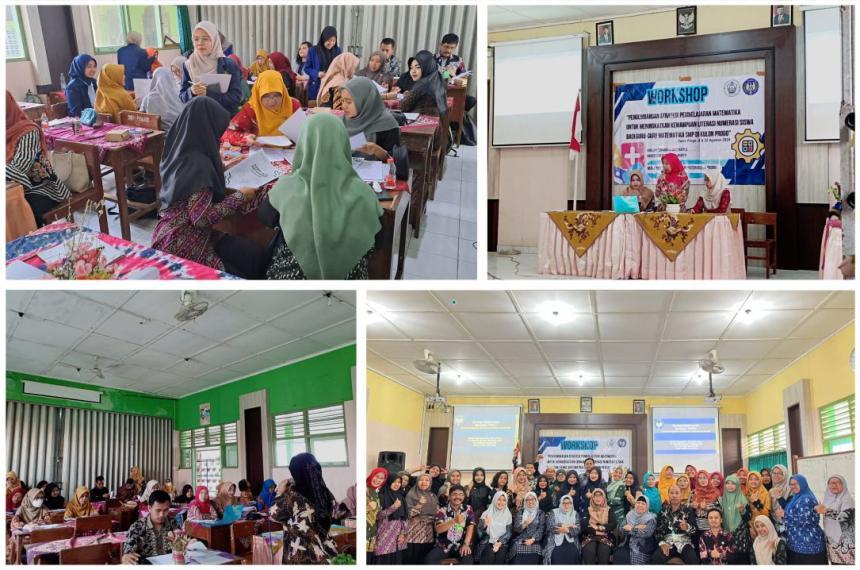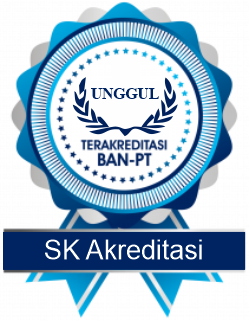 Bahasa Indonesia
Bahasa Indonesia English
English
Lecturers of the Mathematics Education Study Program, FMIPA UNY, Organize a Workshop for Junior High School Mathematics Teachers in Kulon Progo

The Lecturer Team of the Mathematics Education Study Program, Yogyakarta State University, organized a Community Service (PkM) activity in the form of a workshop themed “Developing Mathematics Learning Strategies to Improve Students’ Numeracy Literacy” in collaboration with the Mathematics Teachers’ Association (MGMP Matematika) of Kulon Progo Regency.
The activity was held on Thursday, August 8 and August 22, 2024, at SMPN 1 Pengasih. The event began with welcoming remarks from the Head of the MGMP Mathematics Kulon Progo, Mr. Sudaryanta, S.Pd., who expressed his appreciation for this program as it could broaden teachers’ perspectives and attention in enhancing students’ literacy and numeracy skills in their respective schools.
The second speech was delivered by the Principal of SMPN 1 Pengasih, Mrs. Sri Harini, S.Pd., who warmly welcomed the UNY lecturer team eager to share knowledge through this workshop.
The lecturers serving as speakers in this activity were Dr. Djamilah Bondan Widjajanti, M.Si., Dr. Endang Listyani, M.S., Endah Retnowati, M.Ed., Ph.D., and Husna ‘Arifah, M.Sc., assisted by seven undergraduate and graduate students.
On August 8, 2024, as the first speaker, Endah Retnowati, M.Ed., Ph.D., delivered material on Worked Example-based Numeracy Learning Strategies, which are part of empowering learning. In today’s era of globalization, teachers are no longer the central focus but rather facilitators. One learning model that can help improve students’ numeracy literacy is Problem-Based Learning with the IDEAL concept (Identify the data, Define the problem, Explore possibilities, Action, and Look & learn).
In the learning process, the concept of “Niteni, Niroke, Nambahi” can also be applied. Niteni means “observe,” where students are given worked examples of problem-solving to study. Next, Niroke means “imitate,” where without looking at the example, students attempt to solve a problem on their own using their understanding (in a similar context or procedure). Finally, Nambahi means “modify,” where students are given the opportunity to try solving mathematical problems in different contexts. Several designs of worked examples were also presented, including problems with Split Attention and integrated problems.
Copyright © 2026,



